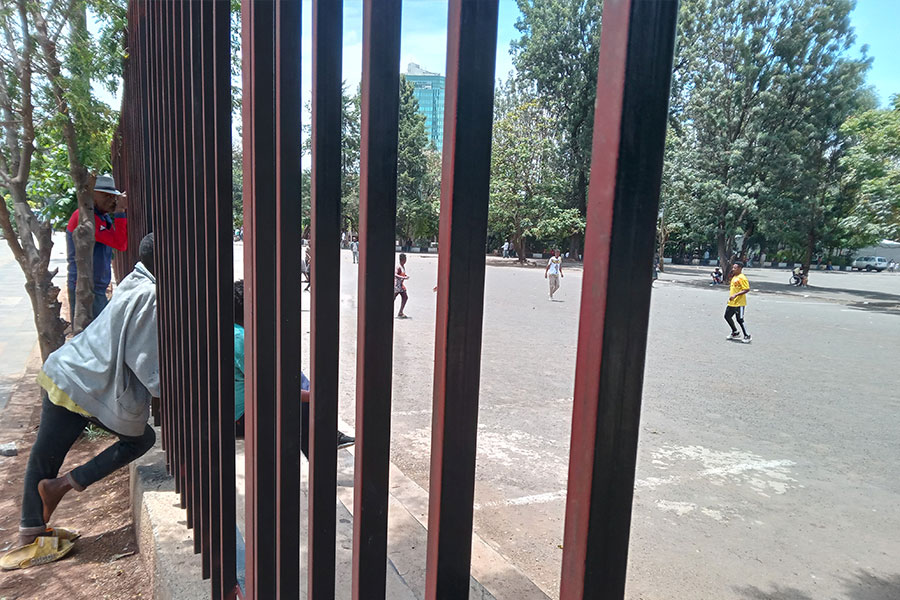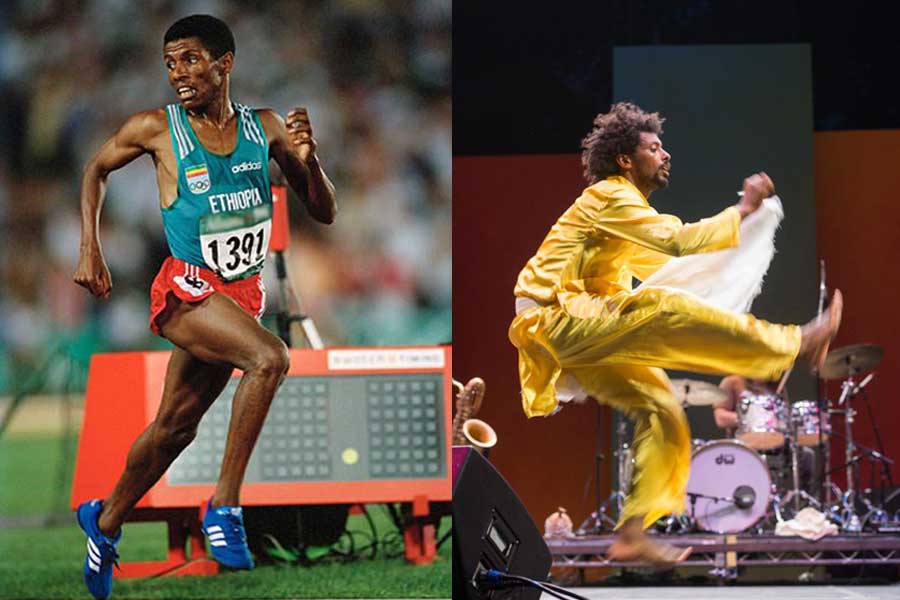
Nov 23 , 2019
By Tsion Fisseha
The first day I learned about poetry was in the third grade. My English teacher (also my only friend at that moment) told us to turn our pages and read about poetry. I was immediately captivated by the very idea of words rhyming and making sense. I had never been this excited about something that was taught in class, so I had no choice but to believe that this, this assembly of words in a meticulous way, was what I had to do for the rest of my life.
After that I went through a series of career path selections, ranging from engineering to law and later on to political science and at the very end journalism, but ended up studying economics. With every passing selection I felt that squirmy little poet fading away from my peripheral vision. Instead, excuses and explanations as to why I could not just follow my passion followed me for years and are still following me.
And now three jobs and three different fields later I ask myself, “When did money become more powerful than peace of mind?”
In the book "Hitchhiker’s Guide to the Galaxy," author Douglas Adams writes “This planet has - or rather had - a problem, which was this: most of the people living on it were unhappy for pretty much of the time. Many solutions were suggested for this problem, but most of these were largely concerned with the movement of small green pieces of paper, which was odd because on the whole it wasn't the small green pieces of paper that were unhappy.”
And as much as one would like to believe that passion is much more fulfilling than the coins we get here and there, almost every problem or crisis could be traced back to lack of or abundance of this thing we call "money".
Almost every aspect points its fingers toward the wealth and prestige used for extravaganzas or to scraps of cash here and there that bring just enough food to help one survive but not quite enough to make one say one is truly living.
Political rivalries usually do not arise from pure detesting of one another. They do not hinder our logic through the pure desire to assert dominance over one another. These desires to sit on the throne do not arise from one’s mere affection toward chairs. They all want what the other has: enough money, enough benefits and enough prosperity for themselves and their people.
To counteract the old adage that "money does not buy you happiness," Groucho Marx jokingly once rejoined, “While money can't buy happiness, it certainly lets you choose your own form of misery.”
On the other end of the spectrum people from different backgrounds and different beliefs of the afterlife argue that the money that we have worked for our entire lives does not leave this earth with us once the inevitable death comes and takes us away. They argue that living now the best way we can by following our heart’s desire makes everyday less painful.
And still others believe there can be a middle ground - a way one could follow one’s passion without selling his or her soul to the devil.
Looking back, sometimes I feel like I should have followed my heart, and other times I appreciate all the paths I have taken that got me to where I am now. Who can know for sure which course is the right path?
PUBLISHED ON
Nov 23,2019 [ VOL
20 , NO
1021]


Addis Fortune Press Release | Oct 04,2024

Sunday with Eden | Jun 12,2021

Fortune News | Oct 11,2020

Life Matters | Jun 15,2024

In-Picture | May 11,2025

Life Matters | Dec 10,2018

My Opinion | Aug 14,2021

View From Arada | May 14,2022


Fortune News | Apr 30,2021

My Opinion | 131584 Views | Aug 14,2021

My Opinion | 127940 Views | Aug 21,2021

My Opinion | 125915 Views | Sep 10,2021

My Opinion | 123539 Views | Aug 07,2021

Dec 22 , 2024 . By TIZITA SHEWAFERAW
Charged with transforming colossal state-owned enterprises into modern and competitiv...

Aug 18 , 2024 . By AKSAH ITALO
Although predictable Yonas Zerihun's job in the ride-hailing service is not immune to...

Jul 28 , 2024 . By TIZITA SHEWAFERAW
Unhabitual, perhaps too many, Samuel Gebreyohannes, 38, used to occasionally enjoy a couple of beers at breakfast. However, he recently swit...

Jul 13 , 2024 . By AKSAH ITALO
Investors who rely on tractors, trucks, and field vehicles for commuting, transporting commodities, and f...

Jun 28 , 2025
Meseret Damtie, the assertive auditor general, has never been shy about naming names...

Jun 21 , 2025
A well-worn adage says, “Budget is not destiny, but it is direction.” Examining t...

Jun 14 , 2025
Yet again, the Horn of Africa is bracing for trouble. A region already frayed by wars...

Jun 7 , 2025
Few promises shine brighter in Addis Abeba than the pledge of a roof for every family...

Jun 29 , 2025
Addis Abeba's first rains have coincided with a sweeping rise in private school tuition, prompting the city's education...

Jun 29 , 2025 . By BEZAWIT HULUAGER
Central Bank Governor Mamo Mihretu claimed a bold reconfiguration of monetary policy...

Jun 29 , 2025 . By BEZAWIT HULUAGER
The federal government is betting on a sweeping overhaul of the driver licensing regi...

Jun 29 , 2025 . By NAHOM AYELE
Gadaa Bank has listed 1.2 million shares on the Ethiopian Securities Exchange (ESX),...